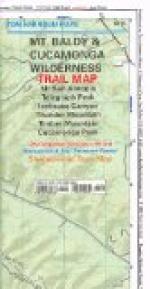“Ugh! I mind the ducking now more than I did a while ago,” he murmured. “The water wasn’t cold. Why, we bathed at the other end of the pond late last evening! But these wet clothes are precious uncomfortable. I wish we were nearer to camp. Good Gracious! What’s that?”
He stood stock-still and erect, his flesh shrinking a little, while his drenched flannel shirt clung yet more closely and clammily to his skin.
A distant noise was wafted to his ears through the forest behind. It began like the gentle, mellow lowing of a cow at evening, swelled into a quavering, appealing crescendo cadence, and gradually died away. Almost as the last note ceased another commenced at the same low pitch, with only the rest of a heart-beat between the two, and surged forth into a plaintive yet tempestuous call, which sank as before. It was followed by a third, terminating in an impatient roar. The weird solo ran through several scales in its performance, rising, wailing, booming, sinking, ever varying in expression. It marked a new era in Neal’s experience of sounds, and left him choking with bewilderment about what sort of forest creature it could be which uttered such a call.
He began to get out some bungling description when Cyrus joined him shortly afterwards, but the American had had a lively time of it while recovering his jack-light and righting the canoe on mid-pond. He was in no mood for explanations.
“Keep the yarn, whatever it is, till to-morrow, Neal,” he said. “I didn’t hear anything special. Perhaps I was too far away. I’m so wet and jaded that I feel as limp as a washed-out rag. Let’s get back to camp as fast as we can.”
CHAPTER III.
Life in A bark hut.
It was two o’clock in the morning when the tired, draggled pair stumbled ashore at the place where they embarked, hauled up their birch skiff, leaving it to repose, bottom uppermost, under a screen of bushes, and then stood for some minutes in deliberation.
“I’m sure I hope we can find the trail all right,” said Cyrus. “Yes, I see the blazes on the trees. Here’s luck!”
He had been turning the jack-lamp on either side of him, trying to discover the “blazes,” or notches cut in some of the trunks, which marked the “blazed trail”—in other words, the spotted line through the otherwise trackless forest, which would lead him whither he wanted to go.
It required considerable experience and unending watchfulness to follow these “blazes”; but young Garst seemed to have the instinct of a true woodsman, and went ahead unfalteringly, if vigilantly, while Neal followed closely in his tracks.
After rather a lengthy trudge, they reached a point where the ground sloped gently upward into a low bluff. Still keeping to the trail, they ascended this eminence, finding the forest not so dense, and the walking easier than it had been hitherto. Gaining the top, they emerged upon an open patch, which had been cleared of its erect, massive pines, and the long-hidden earth laid bare to the sky by the lumberman’s axe.




